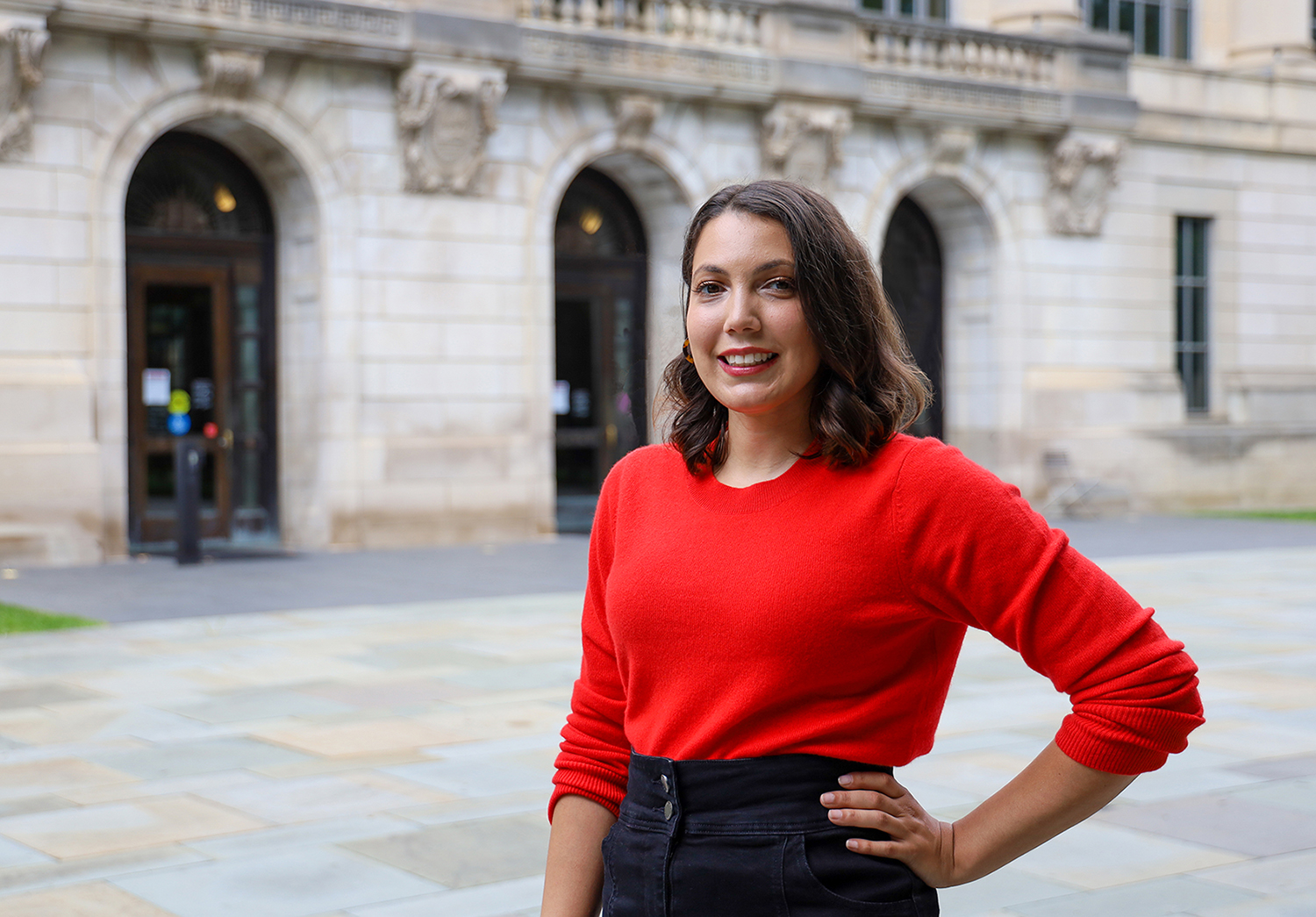Q&A: Ashleigh LoVette
Focusing on resilience, her work aims to eliminate sexual and mental health disparities for marginalized youth
By Kristen Mitchell

Meet Ashleigh LoVette, assistant professor of health behavior and health promotion, who is focused on supporting young people facing adversity as a community-engaged scholar.
LoVette shared how she discovered her passion for public health, the moments that make her most proud, and an overarching question that guides her research.
Question and Answer
What drew you to the field of public health?
What drew me to the field of public health was really the opportunity to move beyond addressing individual risk, its focus on prevention, and the underlying principle of social justice. As a community-engaged and interdisciplinary scholar, I was really drawn to a field that allowed me to work in teams and with people who are from different backgrounds and have different experiences and perspectives.
A lot of your work has been focused on the mental and sexual well-being of young women and girls. Can you tell me why you wanted to focus on resiliency within this population?
It comes from my own experiences growing up as a young person facing adversity. The challenges I faced as a young person were difficult, but I had support from some family members. I had a nurturing environment in school and other places in my community. When I read or I heard things that were related to the challenges I had faced as a young person, it was always framed in the negative and how these things were going to negatively impact me later. I didn’t hear about the family member that was supportive, or the resources and assets that helped young women of color like me navigate the world.
As I worked my way through school, I began to have little nudges that made me want to look more closely at these processes of overcoming adversity and the resources and strengths of individuals and communities that help support these processes. During graduate school I found this word, or concept, that described these experiences — resilience — and I was like OK, this is what I want to learn more about and where I ended up focusing on in my work.
You recently launched a new study. What can you tell me about that?
That study is focused on understanding multi-level risk and protective factors for young Black women in Baltimore placed at risk for HIV. It’s about understanding how past experiences, both positive and negative, and where these experiences take place, can impact their sexual health and increase disparities. These disparities in the HIV risk are due to social and structural barriers, and also based on aspects of young Black women’s identity, such as their race and their gender and the intersections between them.
With this project we partnered with a community organization called Ballet After Dark. They specifically work with Black survivors, primarily women and young people, using movement for healing. Working with them ensures the project remains grounded in trauma-informed practices, which is important to me as a researcher focused on sexual and mental health.
Are there any big questions that guide your research?
One big overarching question that really guides my work is “how do we change the conditions that create sexual and mental health disparities for marginalized youth?” It’s not just about creating programs and interventions — which are great, but in order to support young people and help them live full, healthy, whole lives, we also need to change the policies, systems, and conditions that are creating these disparities and negative health outcomes in the first place.
What has made you most proud about your work in public health?
What I love most about my work and research in public health is the partnerships and relationships I’ve been able to build with individuals, communities and organizations, and the sense of trust I’ve been able to build with young people who I work with.
It’s important to involve young people in research processes and have them learn about different career opportunities as well. When I was younger, I thought a scientist was just in a lab with a microscope. I didn’t know that scientists could work with people or that research outside of a lab was a potential career pathway because I hadn’t seen it before.
What advice do you have for students trying to sort out their passion in public health?
Talk to folks who work in various areas. It could be someone who works at the local health department, or it could be a faculty member at the college. Learn more about what it’s like on a day-to-day basis. Passion is an individual thing. Your job is to take all the information and see how it applies to you. Your goal in learning about public health in all these spaces isn’t so you can become that person, it’s so you can take that information and explore your own passion for public health and where it may lead you.
About The Ohio State University College of Public Health
The Ohio State University College of Public Health is a leader in educating students, creating new knowledge through research, and improving the livelihoods and well-being of people in Ohio and beyond. The College's divisions include biostatistics, environmental health sciences, epidemiology, health behavior and health promotion, and health services management and policy. It is ranked 22nd among all colleges and programs of public health in the nation, and first in Ohio, by U.S. News and World Report. Its specialty programs are also considered among the best in the country. The MHA program is ranked 5th and the health policy and management specialty is ranked 21st.